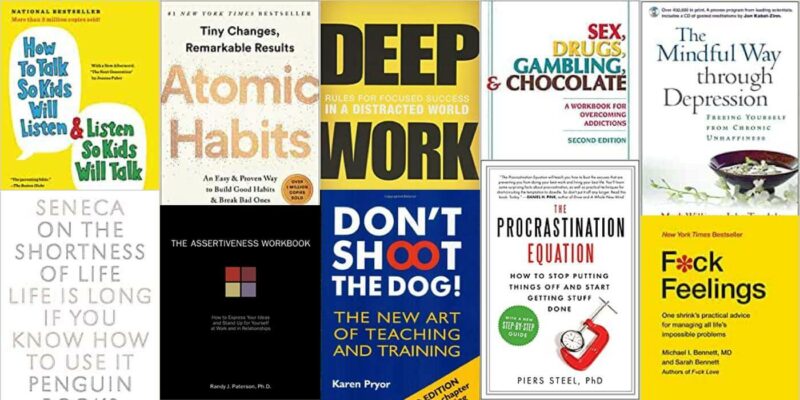My favorite definition of self-esteem comes from Naval Ravikant:
Self-esteem is just your reputation with yourself.
Recognizing the signs of low self-esteem is important for at least two reasons:
- If you struggle with low self-esteem yourself, understanding these signs can be useful in figuring out which of your habits or tendencies is most contributing to your self-esteem remaining low. Then, you can use these as a blueprint for improving it.
- It’s also important to know how to identify signs of low self-esteem in others. You’d want to think very carefully, for example, before you agreed to marry or go into business with someone who had very low self-esteem.
Here are seven signs that often indicate low self-esteem.
1. Acting defensive
Everybody feels defensive sometimes.
If you think you’ve been unfairly criticized, judged, or disrespected in some way, it’s totally normal to have a strong emotional reaction to that—usually some mixture of anger, sadness, and anxiety.
But here’s the thing…
There’s a big difference between feeling defensive and acting defensive.
If you feel attacked, the impulse to attack back can be swift and strong:
- Countering their criticism with your own sarcastic comment.
- Responding to their disrespect by disrespecting them right back.
And even though it’s natural to react defensively, it’s rarely helpful, especially if you struggle with low self-esteem.
When you have low self-esteem, you’re always on the lookout for ways to feel better about yourself. And when you act out your defensiveness by counterattacking or criticizing back, it temporarily makes you feel strong and powerful.
But the long-term consequences aren’t worth it…
- Acting out your defensiveness usually leads to more unnecessary conflict and resentment.
- Over time, you feel bad about yourself for contributing to the deterioration of the relationship.
- And so your self-esteem suffers.
Better to validate feeling defensive and try to act on your values than to act on defensiveness and reinforce your low self-esteem.
Learn More:
2. Judgmentalness
We all have the capacity to be critical and pass judgment. And it’s a good thing!
- If you weren’t able to think critically, how could you solve important problems at work?
- If you weren’t able to make judgments on people’s character, you might find yourself dating sketchy people or falling for scams and frauds.
But here’s the important distinction:
The ability to judge is very different than the habit of being judgmental.
For one thing, not everything can or should be judged all the time. Sometimes a pretty sunset is just a pretty sunset and you don’t need to judge or analyze why.
But here’s the bigger issue, especially when it comes to self-esteem:
People with low self-esteem can get into the habit of using judgments as a way to feel better about themselves.
For example:
- When you judge someone for their poor taste in fashion, you’re implying that you are discerning and have good taste. And that briefly feels good.
- When you criticize someone in your head for a “dumb” comment during a meeting at work, you’re implying that you’re smart. And that briefly feels good.
Of course, the good feelings are fleeting and shallow…
Putting other people down as a way to feel better about yourself is a pretty poor strategy for healthy self-esteem in the long-run.
Despite the brief ego boost, habitually judging others only makes us feel worse about ourselves.
Judgment is a tool. But if you find yourself using it unthinkingly, it might be a good idea to reflect on why.
Learn More: The Real Reason We’re So Critical of Others
3. People-pleasing
Like many of the things on this list, people-pleasing is a defense mechanism whose benefits are short-lived and downsides worse than you think.
If you struggle with low self-esteem, the thing that feels like the problem is your feelings about yourself—not worthy, inadequate, afraid, helpless, etc.
But here’s the thing:
Feeling bad about yourself isn’t the real problem with low self-esteem—the real problem is what you do on a regular basis that reinforces your low self-esteem.
Remember: Self-esteem is your reputation with yourself. And reputations are built on actions, not feelings.
People-pleasing is an attempt to feel better about yourself by trying to influence others to feel better about you.
For example:
- You’re in the habit of flattering your boss at work. The underlying belief being that if your boss feels better about you, then you will feel better about yourself.
- Or maybe you habitually give up on your wants and needs in a relationship in order to keep your partner happy. The idea is that if they feel better about you, you’ll feel better about yourself.
Unfortunately, this strategy usually ends up backfiring…
When you make your self-worth dependent on other people feeling good about you, it’s a set-up for low self-esteem.
Of course, it’s great when people feel good about us. And there are plenty of good reasons to try and influence people in that direction. But as a way to improve your self-esteem, it stinks.
Learn More: An Expert Guide to Assertive Communication with Dr. Randy Paterson
4. Reassurance-seeking
Human beings are social creatures. So it’s natural that when we feel bad, we look to others to help us feel better.
And while there’s nothing wrong with looking to other people for emotional support from time to time, it can be a major sign of low self-esteem if it’s habitual.
If you depend on other people to feel good in the short term, you will end up feeling worse about yourself in the long term.
The reason is pretty straightforward:
- When you outsource difficult moods and emotions to other people, you kill your confidence in your own ability to handle emotional difficulties.
- Do this often enough and you eventually begin to feel completely inadequate and helpless in the face of difficult emotions.
- And if that’s the case, how could your self-esteem not suffer?
Chronic reassurance-seeking is both a sign and cause of low self-esteem. So if you want to improve your self-esteem, it’s important to build confidence in your own ability to handle difficult emotions and moods.
Learn More: 4 Habits of Emotionally Confident People
5. Not enforcing your boundaries
People who struggle with low self-esteem don’t value themselves enough.
And as a result, they end up deferring their wants and needs for those of other people:
- “Going with the flow” and agreeing to plans you don’t want.
- Not bringing up that important piece of feedback because you don’t want the other person to get upset.
- Taking on too much work because you’re afraid to say no and disappoint people.
Every time you fail to enforce a boundary, it’s like you’re telling yourself that you’re not as important as other people.
And how would you expect to feel about yourself if you constantly tell yourself that everyone else matters more than you?
On the other hand, one of the best ways to improve your self-esteem is to start standing your ground and enforcing the boundaries that you do set.
If you want a better reputation with yourself, you need to start standing up for yourself.
Learn More: 5 Rules for Setting Healthy Boundaries
6. Excessive positivity
It takes a lot of emotional courage to face up to the negatives in life:
- It’s hard to admit when we’re wrong and tolerate feeling ashamed.
- It’s hard to acknowledge helplessness and the sadness that comes from knowing someone is in pain and we can’t do anything to help.
- It’s hard to accept uncertainty and all the anxiety that comes with it.
But if you struggle with low self-esteem and don’t have much confidence in yourself, it’s awfully tempting to try and avoid those hard, painful realities, and instead, pretend that everything’s fine.
In other words…
Excessive positivity is often a defense mechanism to avoid difficult emotions.
But like most avoidance strategies, the long term costs usually outweigh the short term benefits. Specifically, by running away from your fears and insecurities, you teach yourself that you can’t handle them—and this degrades your self-esteem in the long term.
But if you can start to confront those difficult feelings, and be willing to express negativity when appropriate, you will start to build emotional confidence. And along with it, you’ll find your self-esteem rising.
Learn More: The Problem with Positive Thinking
7. Indecisiveness
We all go back and forth with big decisions in life. But when indecision becomes a constant struggle—even in small things like where to eat dinner or what to watch on Netflix—it can be a sign of bigger issues with self-esteem.
Specifically, low self-esteem often results in low levels of trust in yourself. And when you don’t trust yourself—including your decision-making abilities—it’s common to fall into a habit of telling yourself you can’t make decisions and outsourcing those decisions to other people.
But like so many of the things in this article, the problem with indecisiveness is what it teaches your own brain—namely, that you are not competent to make decisions on your own or in the face of uncertainty.
So in addition to being a symptom of low self-esteem, indecisiveness also becomes a cause.
Of course, the silver lining here is that if you practice making decisions despite not feeling comfortable, you’ll not only increase your confidence in decision-making specifically, you’ll also be improving your self-esteem more generally.
Uncertainty and the anxiety that goes along with it are an inevitable part of life. Don’t let that stop you from making the best decision you can and getting on with your life.
Learn More: Helpful Tools for Managing Worry and Anxiety
All You Need to Know
We all struggle with these sometimes. And just because you do, doesn’t mean you have some major issue with low self-esteem.
But if you or someone important to you does struggle with several of these in a significant way, it’s worth considering that low self-esteem might be at the root of them.
To review, here are 7 habits or tendencies that are often both signs and causes of low self-esteem:
- Acting defensive
- Judgmentalness
- People-pleasing
- Reassurance-seeking
- Not enforcing your boundaries
- Excessive positivity
- Indecisiveness





9 Comments
Add YoursGood article about self esteem
Thanks, Suresh!
Very well explained
You have given me the tools l need to be assertive with my boundaries. My Son is a compulsive gambler, and l no longer am his financial enabler.
Glad it was helpful, Penelope
Thank you for this article. It really helped me identify some of my own behaviors that contribute to my low self esteem. I think I will be better able to identify when I am doing these things.
I’m glad, Susie 🙂
I so look forward to your emails with helpful articles and links to pave the road for self reflection and mental healthiness! 🙂
Thanks Nick, this article really cut through for me. More homework to do ☺